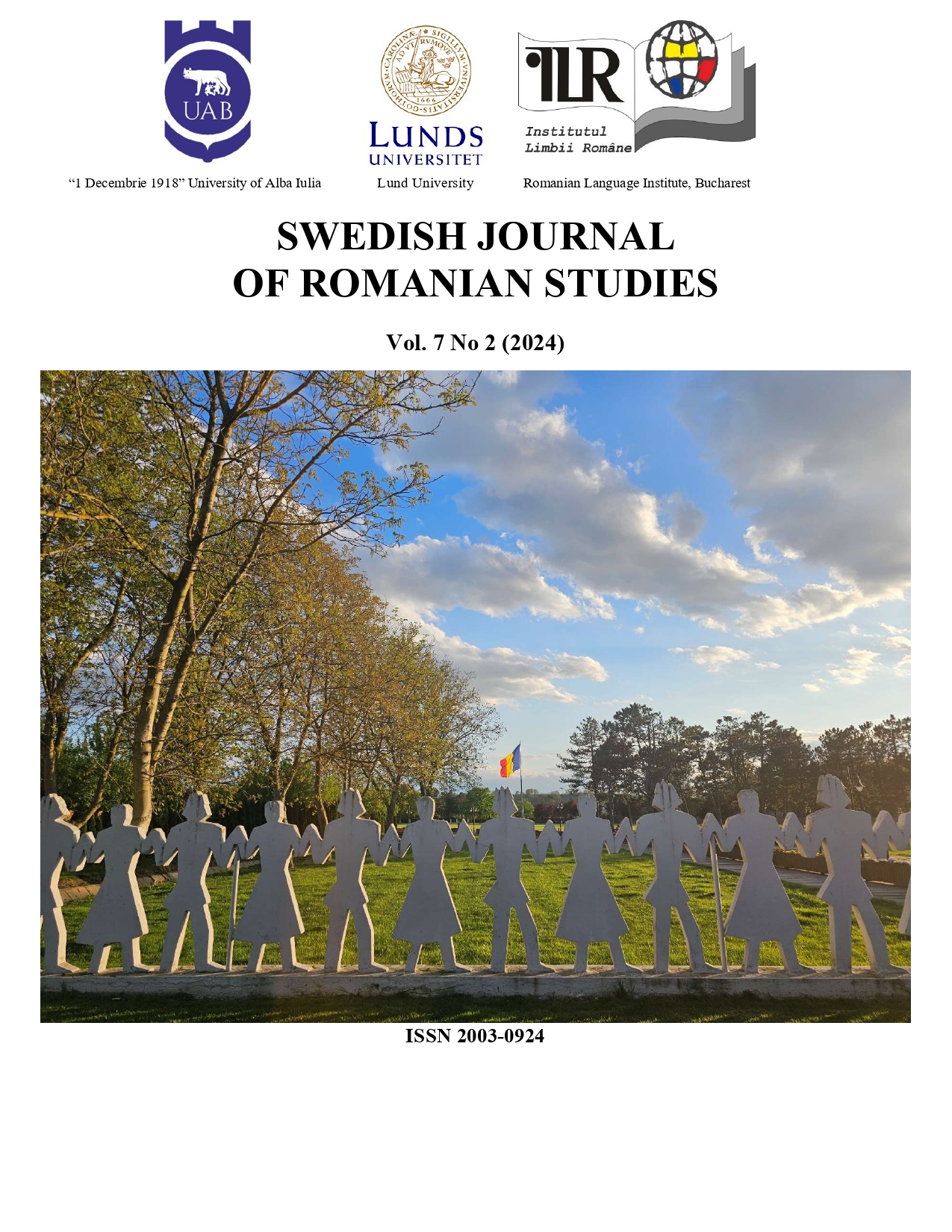King Oscar II of Sweden and his connections with the Romanian freemasonry
DOI:
https://doi.org/10.35824/sjrs.v7i2.25931Keywords:
King Oscar II of Sweden, Freemasonry , elites, National Grand Lodge of Romania (M.L.N.R) , Swedish Grand LodgeAbstract
The present analysis represents a novel approach to the issue of Romanian-Swedish bilateral relations in the second half of the 19th century. This time, the focus is on the dimension of contacts between Romanian and Swedish Freemasonry. This was conducted in the second half of the 19th century by King Oscar II himself. In 1885 he made an official visit to Bucharest with Queen Sofia. On this occasion, he was made an honorary member of the Grand National Lodge of Romania (M.L.N.R.). Far from being merely a protocol award, it held a special significance. This visit underlined the desire of Constantin Moroiu, Grand Master of the Grand National Lodge of Romania, to gain international recognition for this Romanian Masonic powerIt was a very turbulent period in the history of Romanian Freemasonry, marked by a series of interventions by the Grand Orient of Italy in its internal affairs. With the award of this distinction, Romanian Freemasons sought to strengthen their internal unity through external recognition from all Masonic powers. To this end, the help of the Grand Lodge of Sweden was essential. The desire to consolidate the unity of Romanian Freemasonry was a natural reality, given the fact that Romania was proclaimed a Kingdom in 1881 and became a base of stability in this part of the continent.
References
I. Archives
Archive of the Grand Lodge of Sweden. External documents: Romanian Freemasonry and the Grand Lodge of Sweden. Unnumbered.
Central National Historical Archives Service - Bucharest. Royal Household fonds: Officials, file 18/1881.
II. Books
Bălcești, H. N. (1993). Ordinul masonic român [Romanian freemasonry order]. București: Casa de Editură și Presă Șansa SRL.
Cristea, G. (2007). Regi și diplomați suedezi în spațiul românesc (secolele XVII-XX) [Swedish kings and diplomats in Romania (17th-20th centuries)]. Cluj-Napoca: Centrul de Studii Transilvane.
Ștefănescu, P. (2009). Istoria francmasoneriei române [History of Romanian freemasonry]. București: Edit. Vestala.
Vele Ana-Maria & Varga Attila (2012). Diplomația franceză și primii ani de domnie ai lui Carol de Hohenzollern-Sigmaringen (1866-1875) [French diplomacy and the early years of the reign of Charles of Hohenzollern-Sigmaringen (1866-1875)]. Cluj-Napoca: Edit. Argonaut.
Marton, Silvia. (2016). “Republica de la Ploiești” și începuturile parlamentarismului în România [The "Republic of Ploiesti" and the beginnings of parliamentarianism in Romania]. București: Edit. Humanitas.
III. Studies
Crețu, D. (n.d.) Proclamarea Regatului României și atitudinea Marilor Puteri [The proclamation of the Kingdom of Romania and the attitude of the great powers]. Transilvania, 10.
Florian, N. & Nicolae, E. (n.d.) Constantin Moroiu. In Constantin Moroiu | PDF (scribd.com).
Downloads
Published
How to Cite
Issue
Section
License
Copyright (c) 2024 Attila Carol Varga

This work is licensed under a Creative Commons Attribution-NonCommercial 4.0 International License.
Authors who publish with this journal agree to the following terms:
a. Authors retain copyright and grant the journal right of first publication with the work simultaneously licensed under a Creative Commons Attribution-NonCommercial 4.0 International License that allows others to share the work with an acknowledgement of the work's authorship and initial publication in this journal.
b. Authors are able to enter into separate, additional contractual arrangements for the non-exclusive distribution of the journal's published version of the work (e.g., post it to an institutional repository or publish it in a book), with an acknowledgement of its initial publication in this journal.
c. Authors are permitted and encouraged to post their work online (e.g., in institutional repositories or on their website) prior to and during the submission process, as it can lead to productive exchanges, as well as earlier and greater citation of published work (See The Effect of Open Access).

